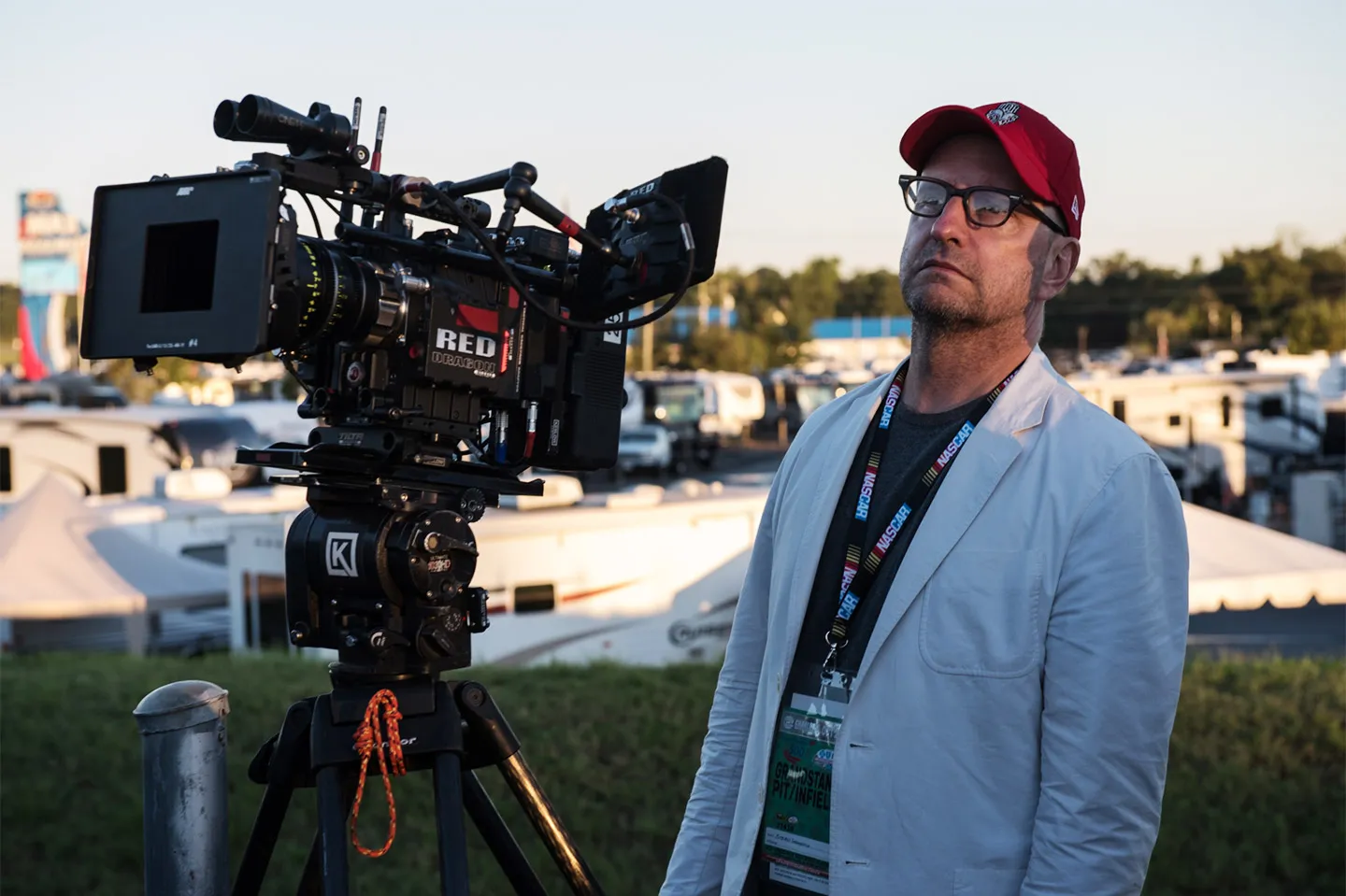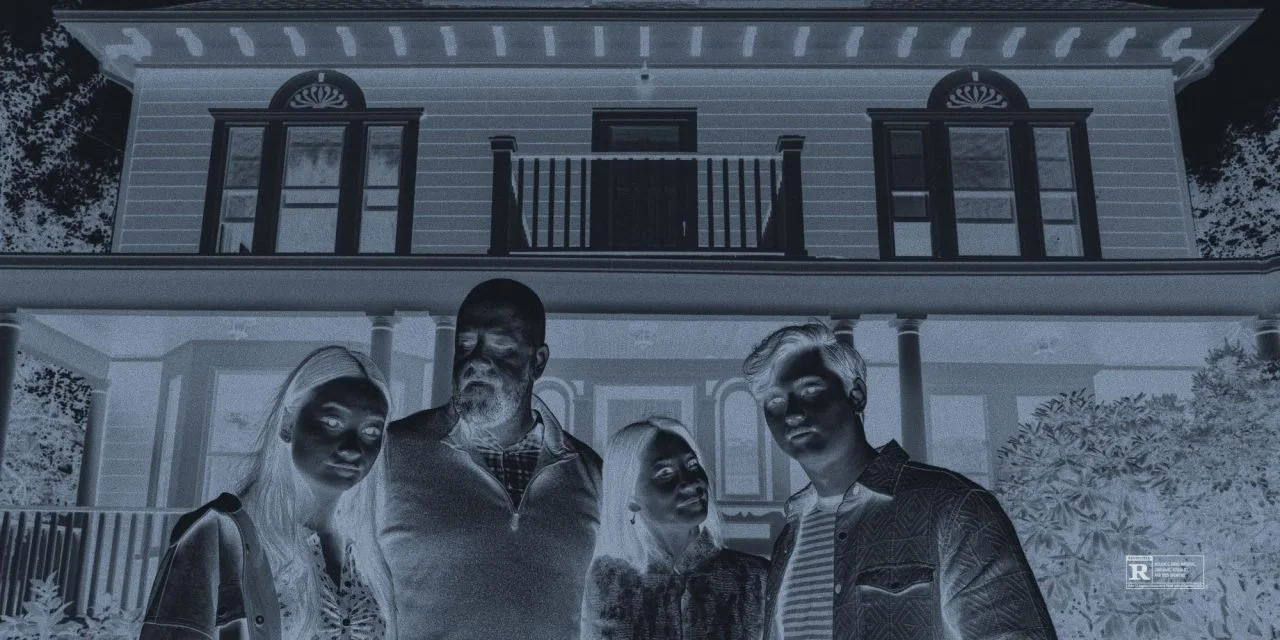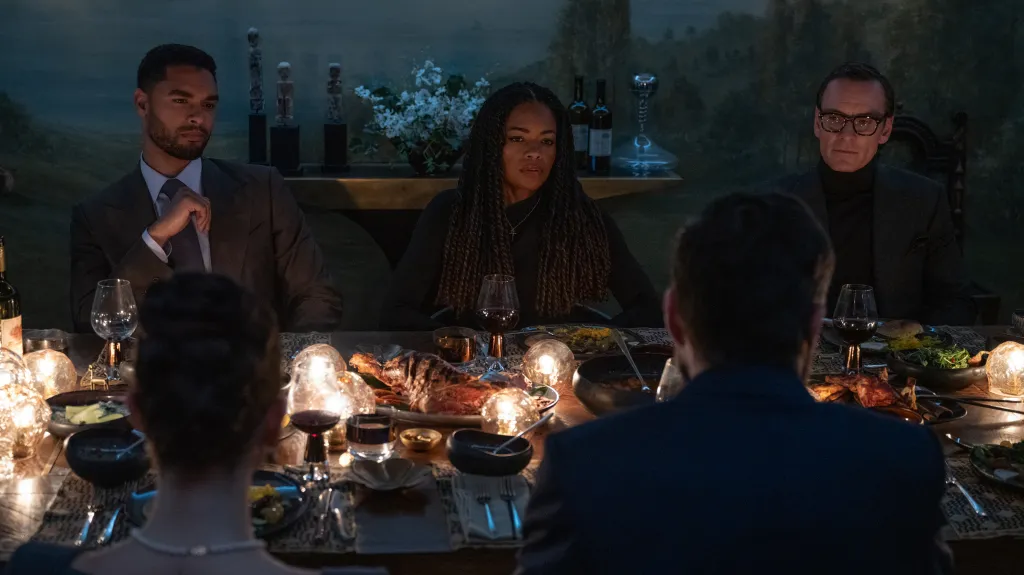Presence and Black Bag: The Dynamism of Soderbergh in 2025
Guest Writer Adrian Ho dives deeper into Steven Soderbergh’s career, with a focus on Presence and Black Bag, which were both released this year.
When was the last time a director had two films out in theatres in the same year? Well there’s actually plenty of examples. Most recently, Ridley Scott had The Last Duel (2021) and The House of Gucci (2021), and in that same year, the likes of Edgar Wright and Ryusuke Hamaguchi, both also had two features, Last Night in Soho (2021) and The Sparks Brothers (2021), and The Wheel of Fortune and Fantasy (2021) and Drive My Car (2021) respectively. In those cases, COVID-19 definitely contributed to the sudden outpouring of films from prolific auteurs but going further back to the 90s, Steven Spielberg had Jurassic Park (1993) and Schindler’s List (1993) and again in the 2000s with Catch Me If You Can (2002) and Minority Report (2002). This year, there is yet another director to add to the list. Steven Soderbergh is no newcomer to this category. His prior works, Erin Brockovich (2000) and Traffic (2000), were released in 2000 and are both Oscar-nominated to boot.
Soderbergh reiterates his auteurship with Presence (2025) and Black Bag (2025). Undeniably one of cinema’s most prolific directors, Soderbergh may also be one of its most underrated. A multi-talented and multi-faceted filmmaker who directs, edits and shoots most of his own features (doing so under the pseudonym of Peter Andrews and Mary Ann Bernard, in honour of his parents), Soderbergh not only remains one of the most consistent working directors in Hollywood, with two limited series and three films in the past three years, but also one of the most consistently reliable in quality, making him a virtuoso stand-out. With a career spanning 40 years and over 30 narrative features, Soderbergh is a superfluous master of genre who has adapted to be extremely economical yet effective in his narrative plotting, with every film easily distinguishable, even the sequels with Ocean’s or Magic Mike in the name. Presence and Black Bag then presents an opportunity to celebrate the dynamism of his work, and briefly look back at his career.
Presence sees an exceedingly normal nuclear family, The Paynes, moving into a new home where not long after, the depressed daughter of the family, with the middle name Blue, senses a presence in the house. A rare sort of film that presents itself completely in the first-person, Soderbergh reinvigorates the haunted house sub-genre through telling the narrative in the perspective of the ‘presence’ itself. The kicker is – Soderbergh is the literal ghost in the machine, with him operating the camera. Though once that is known, it’s hard to imagine the perspective of the camera to be anything other than Soderbergh himself. Soderbergh misses on a certain spirituality and supernatural touch, relying more on typically commercial methods such as the surging strings in the soundtrack to sell audiences on the viability of Presence as a horror film. Rather, the film ruminates on ideas of surveillance, and the identity of the self in private and domestic spheres, pondering precisely what connects us to one another and whether the secret lives we keep from each other factors into it at all, even having a late turn that paints the film in a completely humanistic light. The technical suaveness and mechanical perfection of Presence, along with the elegant economy of the dialogue and narrative is typical of a Soderbergh film; a well-oiled, oft frictionless genre outing where the enjoyment lies more in the collective satisfaction of a job well done.
The same can be said for Black Bag, a neat Cold War-esque globe-trotting espionage thriller that is meticulously crafted and passed off with professional indifference. So much so that you get the feeling that it’s all just in a day’s work for Soderbergh and company. A tightly-wound affair that feels like Agatha Christie meets John LeCarre, in which the film sets the rules of engagement, names the suspects, roots out the red herrings, pats out the details and doubles back all within 90 minutes flat — done barely without breaking a sweat or ruffling any feathers. The intrigue of this film then lies in the fact that one of the suspects, Kathryn St. Jean (Cate Blanchett), is the wife of fellow agent George Woodhouse (Michael Fassbender), who is set with the task of rooting out the traitor. So while outwardly a spy thriller, Black Bag also doubles as a film about marriage, and of the dynamics of power in any relationship. While there is some violence in the film, it functions as sharp relief rather than spectacle. Rather, Black Bag handles its business through sharp wit and a ruthless war of words, anchored through magnetic central performances from Blanchett who slinks around every frame, and a stoic, tight-lipped Fassbender along with a strong ensemble – Marisa Abela (Industry, Back to Black), Naomie Harris (Skyfall, 28 Days Later), and Pierce Brosnan (GoldenEye, Mamma Mia!), etc. – who are great opponents in this high-stakes game of intrigue.
Black Bag sees Soderbergh and screenwriter David Koepp’s third collaboration together, with KIMI (2022) and Presence (2025) being the other two films in what is dubbed the Surveillance Trilogy, with all three of these features having narratives which contend with themes of paranoia and the exploration of relationships in secretive environments. Koepp’s recent partnership with Soderbergh puts two masters of genre together, and their collaborations are so exceedingly efficient that it may come off as frictionless, where the treat becomes the exercise in genre rather than the strokes within the film. Soderbergh’s dynamism comes through in the microcosm of Presence and Black Bag; in how effectively he can shift from a smaller, self-contained ambient horror film to an expansive, globetrotting espionage thriller within the same year, doing so while being the editor, cinematographer and director at the same time. Soderbergh continues to find new ways to reconfigure every genre sandbox he immerses himself in, and time and again, has delivered celebrated features that are endlessly rewatchable.
No director who has won the Palme D’Or (Sex, Lies, and Videotapes, 1989) and Oscars for Best Director (Traffic, 2000) can truly be considered underrated, but there is a conversation to be had on the company he should keep. Soderbergh should be considered among the likes of Martin Scorsese, Francis Ford Coppola, and Akira Kurosawa as pioneers and luminaries of the scene, and yet, he isn’t. Partly, I think that Soderbergh’s embrace of all mediums, having a long and established history with HBO, and being open to streaming as an avenue for filmmaking and film viewing has made him feel commonplace rather than special. A working-man director without an obvious style, Soderbergh’s precisely the sort of director to not get credit until his time has passed. Maybe it’s time to break the cycle, and start appreciating what we have before it’s gone.
Images in this article are being used under Fair Use guidelines as part of Singapore's Copyright Act 2021



